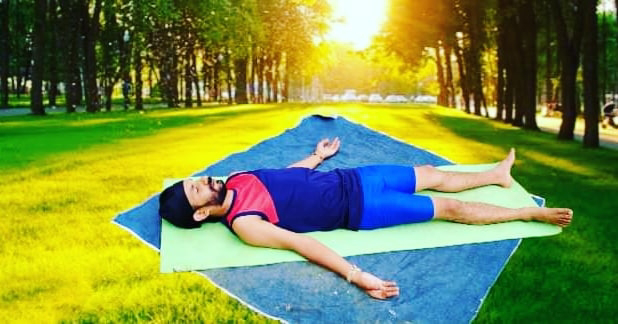Yoga for pranayam Chest pain article.
Yoga is a spiritual discipline that originated in ancient India, and has been practiced for thousands of years. It is a physical, mental, and spiritual practice that aims to harmonize the body, mind, and spirit. There are many forms of yoga, but one of the most popular forms is pranayama yoga. Pranayama yoga is a form of yoga that is focused on breathing exercises. It is believed that by practicing pranayama yoga, one can gain control over the breath, and this can have many benefits for the body and mind.
One of the benefits of pranayama yoga is that it can help to alleviate chest pain. Chest pain can be caused by many different things, and it is important to get a diagnosis from a doctor to ensure that the cause of the pain is not serious. However, in many cases, chest pain can be caused by stress and anxiety, and pranayama yoga can be a very effective way to manage these conditions.
Pranayama yoga can help to reduce stress and anxiety by calming the mind and relaxing the body. This is because when we breathe deeply, we send a signal to our brain that we are safe, and this helps to reduce the level of stress hormones in our body. When we are stressed, we tend to breathe shallowly, and this can lead to tension in the chest and other parts of the body. By practicing pranayama yoga, we can learn to breathe deeply and naturally, which can help to reduce the tension in the chest and other parts of the body.
One of the most important things to remember when practicing pranayama yoga is to listen to your body. If you experience any pain or discomfort, you should stop the exercise immediately and seek medical attention. It is also important to start slowly and gradually increase the intensity of the exercise over time.
There are many different pranayama yoga exercises that can be helpful for chest pain. One of the most basic exercises is called deep breathing. To do this exercise, sit in a comfortable position with your hands resting on your knees. Close your eyes and take a deep breath in through your nose, filling your lungs with air. Hold the breath for a few seconds, and then slowly exhale through your mouth. Repeat this exercise for five to ten minutes, or until you feel calm and relaxed.
Another pranayama yoga exercise that can be helpful for chest pain is called the alternate nostril breathing. To do this exercise, sit in a comfortable position with your hands resting on your knees. Close your eyes and use your right thumb to close your right nostril, and then breathe in deeply through your left nostril. Hold the breath for a few seconds, and then use your right ring finger to close your left nostril, and exhale through your right nostril. Continue this exercise for five to ten minutes, alternating between breathing in through your left nostril and exhaling through your right nostril, and vice versa.
One of the more advanced pranayama yoga exercises that can be helpful for chest pain is called the bhastrika breathing. To do this exercise, sit in a comfortable position with your hands resting on your knees. Close your eyes and take a deep breath in through your nose, and then exhale forcefully through your nose. As you exhale, pull your navel in towards your spine. Continue this exercise for five to ten minutes, taking short, quick breaths through your nose and exhaling forcefully.
In conclusion, pranayama yoga can be a very effective way to alleviate chest pain caused by stress and anxiety. By practicing pranayama yoga regularly, you can learn to breathe deeply and naturally, which can help to reduce tension in the chest and other parts of the body. However, it is important to listen to your body and seek medical attention if you experience any pain or discomfort. With regular practice and attention to your body, pranayama yoga can be a powerful tool for managing chest pain and improving your overall health and well-being.




Comments
Post a Comment